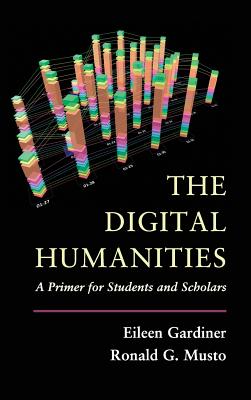EXPLORING BIG HISTORICAL DATA: THE HISTORIAN'S MACROSCOPE
暫譯: 探索大型歷史數據:歷史學家的宏觀透視鏡
Shawn Graham, Ian Milligan, Scott Weingart
- 出版商: World Scientific Pub
- 出版日期: 2015-12-01
- 售價: $4,070
- 貴賓價: 9.8 折 $3,988
- 語言: 英文
- 頁數: 308
- 裝訂: Hardcover
- ISBN: 1783266082
- ISBN-13: 9781783266081
-
相關分類:
Data-mining
海外代購書籍(需單獨結帳)
相關主題
商品描述
Demonstrating what digital tools have to offer and also what 'digital' does to how we understand the past, the authors introduce the many different tools and developing approaches in Big Data for historical and humanistic scholarship, show how to use them, what to be wary of, and discuss the kinds of questions and new perspectives this new macroscopic perspective opens up. Authored 'live' online with ongoing feedback from the wider digital history community, Exploring Big Historical Data breaks new ground and sets the direction for the conversation into the future. It represents the current state-of-the-art thinking in the field and exemplifies the way that digital work can enhance public engagement in the humanities.
Exploring Big Historical Data should be the go-to resource for undergraduate and graduate students confronted by a vast corpus of data, and researchers encountering these methods for the first time. It will also offer a helping hand to the interested individual seeking to make sense of genealogical data or digitized newspapers, and even the local historical society who are trying to see the value in digitizing their holdings.
Readership: Researchers, graduate and undergraduate students in the field of Digital Humanities, and people looking to digitize historical archives.
商品描述(中文翻譯)
數位人文學已經來到一個數位大數據變得更加可獲得的時刻,這不僅開啟了令人興奮的新研究途徑,也帶來了新的挑戰。本書開創性地描述並展示了如何探索這些數據,以構建文化遺產知識,無論是在研究還是在教學和學習中。它幫助人文學者掌握大數據,以便進行他們的工作,無論是理解搜索引擎中運作的基本算法,還是設計和使用自己的工具來處理大量信息。
本書展示了數位工具所能提供的內容,以及「數位」如何影響我們理解過去的方式,作者介紹了許多不同的工具和在大數據中發展的歷史與人文學術方法,展示了如何使用這些工具、需要注意的事項,並討論了這種新的宏觀視角所開啟的問題和新視角。這本書是在網上「實時」撰寫的,並持續獲得更廣泛數位歷史社群的反饋,《探索大歷史數據》開創了新局面,並為未來的對話設定了方向。它代表了該領域的最新思維,並示範了數位工作如何增強公眾對人文學科的參與。
《探索大歷史數據》應該成為面對龐大數據集的本科生和研究生的首選資源,以及首次接觸這些方法的研究人員。它也將為那些希望理解家譜數據或數位化報紙的個人提供幫助,甚至是試圖看到數位化其收藏價值的地方歷史協會。
讀者對象:數位人文學領域的研究人員、研究生和本科生,以及尋求數位化歷史檔案的人士。






























